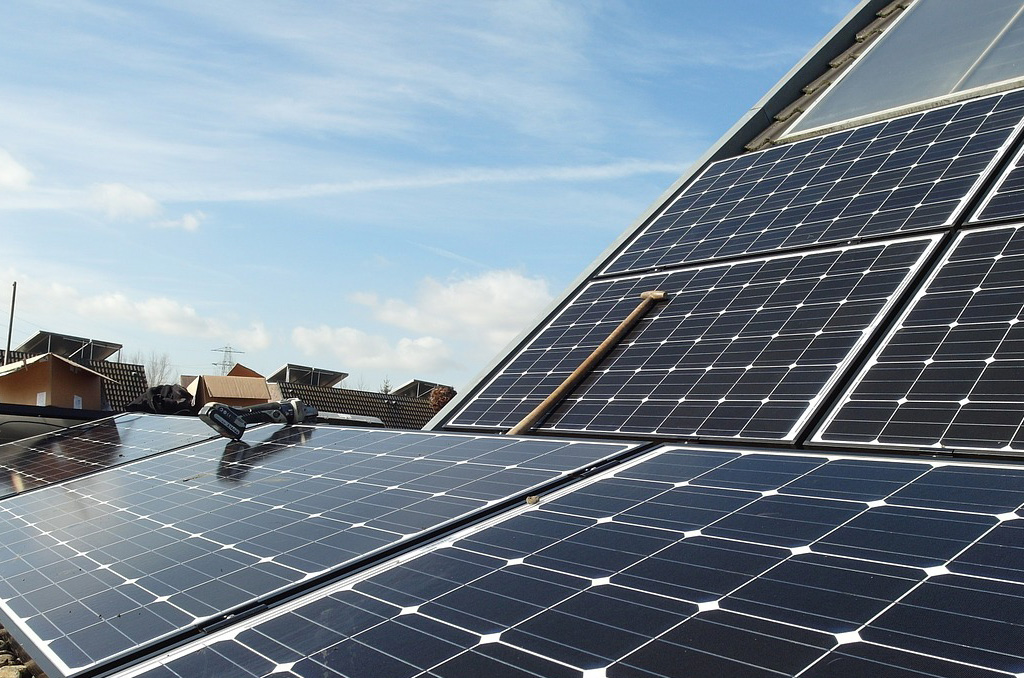
Coodes Solicitors Conveyancing Executive Kerry Hodgson highlights the key questions to ask if you are buying a property with solar panels.
Between 2011 and 2019, thousands of UK homeowners installed solar panels on their rooftops to take advantage of attractive financial incentives through the Government’s feed-in tariff scheme.
According to Solar Energy UK, around a million British homes now feature solar PV panels. The industry body has also reported that residential solar panel installations during the second quarter of 2021 were the highest since the feed-in tariff ended.
This means that many house buyers will find themselves considering properties with rooftop solar panels. While you may be attracted by the prospect of generating green energy, there are some potential pitfalls to consider. The key is to ensure that your conveyancer asks the seller the right questions so that you understand what you are signing up for.
1. Are the panels subject to a rooftop lease?
The most important question to ask is whether or not, as the new owner of the property, you would own the panels outright.
Several companies were set up between 2011 and 2019, offering to install and maintain solar panels for free. As a result, many people who sought to take advantage of the feed-in tariff signed up to a rooftop lease.
This tempting offer meant that the homeowner had the benefit of free installation and maintenance, free electricity and the opportunity to sell back surplus energy to the grid. However, the roof space and the panels now belonged to the installation company, under a 25-year lease.
That means, as the new owner of the property, you would then take on the rooftop lease for the remainder of the tenancy.
It is important to find out whether the installation was carried out in accordance with Building Regulations and who is responsible for maintenance and repairs. You should also check that the company that installed the panels is still in existence. Many opportunistic ventures were set up during the years of the feed-in tariff and not all survived. It could cause significant problems if the PV panels need repairing in the future and the company installer is no longer trading.
2. What are the terms of the lease?
Some installation companies offered rooftop leases with non-negotiable terms and conditions. If you discover that the property you want to buy is tied into a 25-year rooftop lease, it is important to request a copy of the lease. You can then review this and get expert advice before deciding whether or not you want to proceed.
For example, the lease may give the installation company access to your roof to maintain the panels. It is likely to also prohibit you from removing or doing anything to the panels before the end of the 25-year lease.
It may be possible to agree a Deed of Variation or negotiate new terms with the company, including ending the lease early. While there is no guarantee the company will be open to renegotiating the lease, this is something we’ve successfully done on behalf of clients.
3. Is the rooftop lease acceptable to my mortgage lender?
Some banks and building societies view rooftop leases as risky. Therefore, you may find that your potential lender is unwilling to agree to your mortgage if you plan to take on a rooftop lease.
Before buying a home with leased solar panels, your conveyancer should check that the terms and conditions of the lease comply with the Council of Mortgage Lenders’ requirements.
4. Would the panels prohibit me from extending my new home?
Many people buy a new home because of its potential. However, you will need to find out whether or not the rooftop lease would prohibit you from extending the property.
For example, you may discover that the terms and conditions of the lease prevent you from building a loft conversion or other extension to the property. If you have carefully reviewed the lease with your conveyancer, you can then decide whether or not the terms fit with your ambitions.
5. Will the solar panels affect the future saleability or value of the property?
It is important to consider how the solar panels might affect your ability to move house in the future. They could be a help or hinderance, depending on a number of factors.
Speaking to Moneysaving Expert, the National Association of Estate Agents stated that solar panels can have a positive or negative effect on the value and saleability of a property. Their spokesperson said: “If the panels are new technology, show significant savings and are aesthetically acceptable, they may very well boost value. However, in some instances, the agreement which ties respective owners into old technology is onerous and could well affect the value of a property in a negative way.”
Working with a conveyancer with experience of buying and selling properties with solar panels is key. That way you can make sure you are confident you have asked the right questions and understand exactly what you are buying.
For further information or advice please contact Kerry Hodgson in Coodes Solicitors’ Residential Property team on 01566 770017 or Kerry.hodgson@coodes.co.uk.













